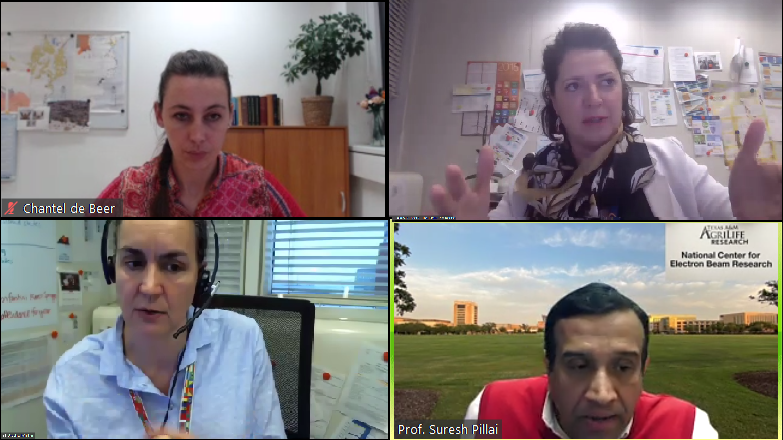
Climate change is having a devastating impact on agriculture and food security systems worldwide. The resilience of agricultural systems and their ability to recover will determine the prospects of global food security. Nuclear science and applications provide tools to track the impact of climate change and develop climate-smart agriculture practices that build resilience in agricultural and food security systems and help them to adapt to climate change. The International Atomic Energy Agency (IAEA) supports its Member States in the research, development and use of these technologies and related techniques and in their safe and secure application.
On 7 December 2021, the VCDNP held a virtual panel discussion on the contribution of nuclear applications to food security in a changing climate, commensurate nuclear security measures, and the assistance provided by the IAEA in this regard. The workshop attracted diplomats, international civil servants, regulatory authorities, atomic energy authorities and academic institutions from 28 IAEA Member States.
Speakers at the panel discussion included:
Safe and secure nuclear technology in plant mutation breeding for climate change adaptation and resilience
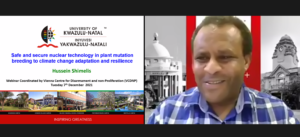
Professor Shimelis discussed how plant mutation breeding improves the resilience and productivity of crops in Africa. He explained how climate change reduces agricultural productivity, increasing food insecurity and slows down economic development. Plant mutation breeding through the irradiation of seeds and plant materials results in the effective development and deployment of climate-resilient, high yielding crops. The University of KwaZulu Natal in South Africa and the Joint IAEA/Food and Agriculture Organisation (FAO) Centre of Nuclear Techniques in Food and Agriculture in Vienna supports plant mutation breeding in Namibia, Zimbabwe, Senegal, Sudan and Kenya.
Professor Shimelis made recommendations for maximising the benefits of plant mutation breeding in Africa. for plant mutation breeding in Africa, which include: (1) more advocacy on the safe and secure applications of nuclear science and technology; (2) the need for regional champions and increased networking; and (3) the need to catalyze investment for research and development (R&D) and capacity development in national breeding programmes.
Water Isotope Data for Climate Science and Food Security

Dr. Miller explained the science behind isotope hydrology, why this application is an important tool for hydrological, climatological and environmental studies and how it benefits farmers. When water moves through the different stages of the hydrological cycle, the oxygen and hydrogen isotopes in water molecules are redistributed. The redistribution of isotopes provides water molecules with a unique isotopic composition, which acts as an isotopic fingerprint that provides information on the history of water and the path it followed. This, in turn, provides the scientific facts on which decisions to protect precious water stocks, both above and below the ground, can be based.
She pointed out that sustainability is about growing the right crops in the right places. Changes in precipitation patterns impact what kind of crops can be grown in different locations. Dr. Miller emphasized that the IAEA needs long-term data records to validate how climate change impacts recharge to global water systems including groundwater systems that support agriculture. Groundwater systems provide an important source of water supply as well as contributing baseflow to rivers, lakes and dependent ecosystems. Calculating recharge to groundwater systems is, therefore, necessary to quantify what is typically one of the largest components of the groundwater balance.
The Sterile Insect Technique (SIT) and How it Contributes to Climate-Smart Agriculture
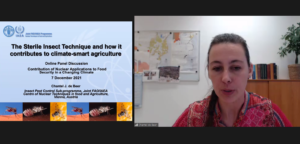
In her remarks, Dr. de Beer explained how the sterilization of male insects with irradiation reduces insect pest populations, thus contributing to agriculture development and food security. Climate change is impacting the distribution of pest species, increasing the survival and establishment of invasive pests in previously inhospitable regions.
The SIT can eradicate, contain or prevent the establishment of invasive populations without leaving an ecological footprint. The joint IAEA/FAO Centre conducts research, supplies biological materials and provides guidance and expert support for technical cooperation projects in IAEA and FAO Member States. The Insect Pest Control Laboratory in Seibersdorf carries out applied research, helping Member States adapt and integrate SIT and area-wide integrated pest management programmes.
Critical Role of Alternative Nuclear Application Technologies in Food Security in a Changing Climate
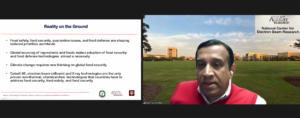
Dr. Pillai noted that food safety, food security, quarantine issues, and food defence are shaping national priorities worldwide. Cobalt-60, electron beam and X-ray technologies are the only proven non-thermal technologies that countries and the food industry have. However, cobalt-60 and cesium-137-based technologies are unsustainable from a cost availability and security perspective. Electron beam and X-ray technologies have matured and are commercially sustainable. Available for plant mutation breeding and post-harvest for storage pest control and the elimination of insects and pests (phytosanitary), the use of these technologies is expanding globally, with the exception of sub-Saharan Africa.
Dr. Pillai proposes bringing together key stakeholders such as private industry, private investors, international financing institutions, experts in electron beam and X-ray technologies, academic researchers, international agencies, and equipment providers to develop a strategy for expanding the use of alternative nuclear technologies to improve strategic stockpiles of food around the world.
Security of Radioactive Material in Use and Storage

Dr. Rodriguez y Baena provided and overview of IAEA’s work in assisting States, upon request, to enhance the security of radioactive material in use and storage under the IAEA’s programme on nuclear security. She also noted that the use of source-based or alternative nuclear technology is the prerogative of individual Member States.
The IAEA’s assistance includes the development and publication of the IAEA Nuclear Security Series guidance documents and online nuclear security e-learning modules, conduct of face-to-face practical training on various topics, the provision of expert guidance through peer review missions and advisory services such as the International Physical Protection Advisory Service (IPPAS). The IAEA also delivers technical assistance to support countries in meeting the provision of relevant international instruments like the Code of Conduct on the Safety and Security of Radioactive Sources and its supplementary Guidance.
The IAEA’s Division of Nuclear Security (NSNS) also provides a technical backstop for nuclear security aspects of relevant IAEA initiatives, including projects under the IAEA Technical Cooperation programme. NSNS also works closely with the Division of Radiation, Transport and Waste Safety and other organizational units of the IAEA, to implement joint activities aimed at supporting States in the safe and secure application of nuclear technology. These include Regulatory Infrastructure Development Projects and promotion of dialogue, such as through conferences like the upcoming International Conference on the Safety and Security of Radioactive Sources, planned to be held in Vienna on 20-24 June 2022.
Expanding the Peaceful Uses of Nuclear Science and Technology to Achieve the Sustainable Development Goals (SDGs)
The panellists agreed that increased advocacy on the benefits of peaceful nuclear technologies and related techniques, better policy and legislative support, increased investment in research, and long-term data records are required. The cost effectiveness of nuclear technologies should be emphasized as they are perceived to be expensive while they are often more cost effective than conventional technologies. To this end, a one-day workshop to educate policymakers and the private sector was suggested. It was also noted that expanding partnerships with the private sector, international financial institutions and specialised UN agencies would contribute significantly to improving the deployment of and access to peaceful uses.
The VCDNP wishes to thank the United Kingdom Foreign Commonwealth and Development Office for its support of this panel discussion.

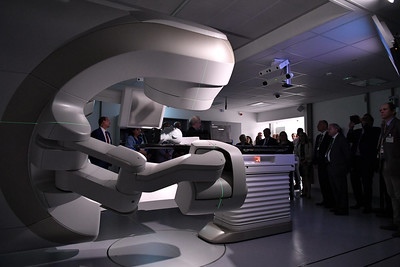
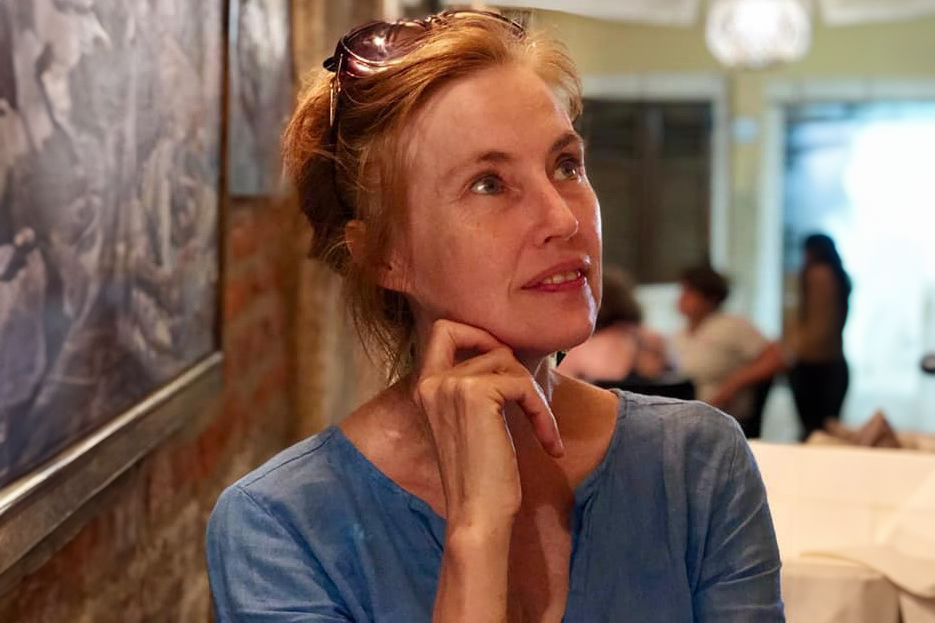
By continuing to use the site, you agree to the use of cookies. more information
The cookie settings on this website are set to "allow cookies" to give you the best browsing experience possible. If you continue to use this website without changing your cookie settings or you click "Accept" below then you are consenting to this.